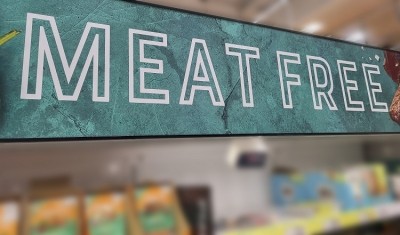Massive study shows that high meat consumption is bad for environment, especially compared with veganism

The study, which was published in Nature Food, covered not just greenhouse gas emissions but also land use, water use, biodiversity impact and eutrophication (when an overabundance of nutrients in water causes excessive algae growth). When looking at greenhouse gas emissions, it looked at carbon dioxide, methane and nitrous oxide.
A range of impacts
Meat contributes negatively to the environment both directly, with the release of methane from livestock, and indirectly, contributing to inefficiencies in the supply chain with carbon-absorbing forests cleared to make way for crops grown to feed animals rather than humans.
The paper built on previous studies exploring the link between diet and the environment, which only focused on one aspect of the environmental impact of food systems.
It also used the Monte Carlo method, a simulation used to account for a range of random variables, to take stock of differences in agricultural practices and the location of the food production.
The study split its subjects into six groups – vegans, vegetarians, pescatarians, and low, medium and high meat-eaters. The three groups of meat-eaters were split to be of similar sizes and to allow for direct comparison with previous studies.
Diets were standardized to 2000kcal to eliminate differences, which could result in an underestimation of differences of impact, as meat-eaters usually eat more kilocalories than others.
Findings
The study found that, on every category assessed, vegans had the lowest impact on the environment, with high meat-eaters having the highest.
For example, emissions of methane (CH4) were 15.3 times higher for high meat-eaters than for vegans. Emissions of nitrous oxide (N2O) linked to the high meat-eater diet was 3.6 times higher than it was for vegans. For carbon dioxide (CO2) emissions, vegans contributed to a mere 30.3% of what high meat-eaters did.
In the Global Warming Potential (GWP) models that the study assessed, the gap between vegans and meat-eaters remained, in some cases even becoming more pronounced. A GWP is an estimate of the potential emissions of greenhouse gasses over a finite period of time.
The differences in the impact of the diets – high meat-eaters making the greatest environmental impact, and vegans the lowest - remain in the studies of other environmentally damaging practices, although the gaps between the dietary groups are of different sizes.
For example, in the impact of diets on land use and eutrophication, high meat-eaters had a far greater impact than all other groups (the low-meat diet having 57.4% of the impact of the high-meat diet for eutrophication, and 43.8% for land use).
However, when it comes to water use, the gap is greater between the two groups of meat and fish eaters and the groups of vegetarians and vegans. When it comes to the impact on biodiversity, vegans have a significantly less profound impact than all other groups, with almost half the impact of vegetarians.
The data shows overwhelmingly that vegan diets are better for the environment than vegetarian, which are better than a diet of fish, which is in turn better than a meat-based diet.
Sourced From: Nature Food
'Vegans, vegetarians, fish-eaters and meat-eaters in the UK show discrepant environmental impacts ’
Published on: 20 July 2023
DOI: https://doi.org/10.1038/s43016-023-00795-w
Authors: P. Scarborough, M. Clark, L. Cobiac, K. Papier, A. Knuppel, J. Lynch, R. Harrington, T. Key & M. Springmann























